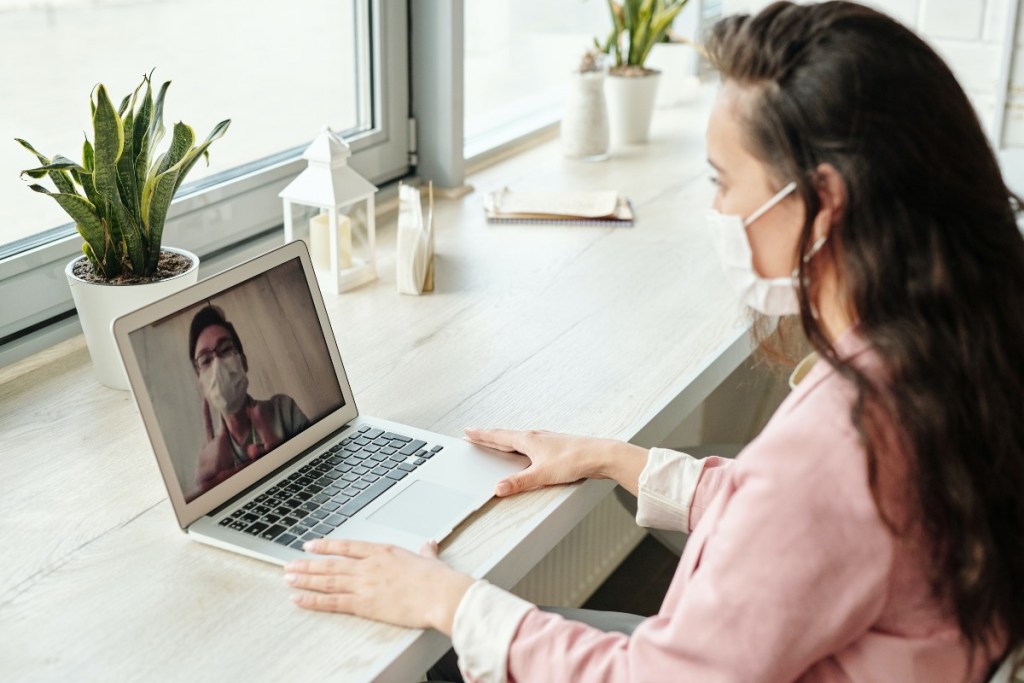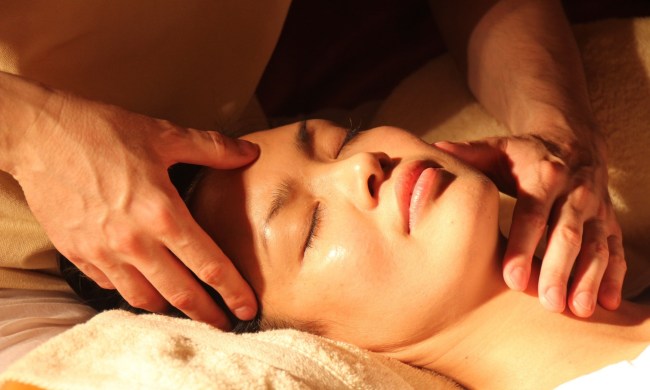Mental health is just as important as physical health (and sometimes, the two are intertwined).
Healthcare professionals understand this fact, and that’s a significant reason why they are now screening women ages 13 and up for anxiety as part of preventative care. The new guidelines went into effect on Jan. 1 after the Women’s Preventative Services Initiative (WPSI) made recommendations about these screenings in 2019.
The screenings for women with anxiety can occur in the office of a primary care physician or OB/GYN during routine check-ups, and insurance will cover it at no additional cost to you. This idea isn’t entirely new — doctors already screen for depression during preventative care visits.
If you’ve never undergone a mental health screening before, you may be wondering what to expect and what happens if your doctor is concerned. Here’s the 411.

Why screening for anxiety is important
Anxiety is highly prevalent, especially among women. About 40 percent of women report struggling with this issue at some point in their lives, and there are about twice as many women struggling with anxiety as men. However, only about 20 percent of women with anxiety receive treatment.
The pandemic shined a spotlight on mental health, as the COVID-19 pandemic is a major factor in the increase of anxiety globally. In fact, about 40 percent of adults reported feeling anxious or depressed during the pandemic.
Anxiety is treatable, and it hasn’t stopped millions of people from living happy, fulfilling lives. By screening for it regularly, doctors can help women and girls find the resources they need to learn effective coping mechanisms and treat the condition more quickly. The screening also helps normalize anxiety and lets patients know they are not alone in their struggles. They don’t need to hide or feel ashamed. Instead, they can talk about their symptoms openly with a trusted healthcare professional and learn about appropriate next steps.
Preparing for your anxiety screening
If you have been feeling anxious, consider taking a self-test before going to the doctor to help you prepare to discuss your symptoms with your provider. The GAD-7 screening tool uses seven questions to evaluate symptoms of Generalized Anxiety Disorder. It scores your responses from one to three based on how prevalent your symptoms are and rates your anxiety from “mild” to “severe.”
Questions include how often you feel afraid, easily annoyed, or on edge.
This questionnaire is by no means mandatory; it’s simply a guide for those who want to gather a few topics for discussion ahead of the appointment. Your doctor will likely use the same or a similar tool during your visit and can discuss your results with you.
Next steps if you or your doctor are concerned
The screening itself is simply just the first step. If your doctor tells you that you may have anxiety, take a deep breath. It’s an unfortunately common condition, and you aren’t alone in your concerns.
Just like any condition (such as migraines or inflammation), the important thing is finding a treatment that works for you. Your doctor can refer you to mental health providers, or you can find them yourself through resources like Psychology Today, your insurance company (you don’t need insurance to get mental help, though), helplines, and referrals from family and friends.
If your screening comes back and your doctor is not concerned, but you are, you still can (and should) look for help. Most therapists don’t require a referral for treatment, so you can seek out help without your doctor’s say-so.
For some people, psychotherapy (talk therapy) works really well. Others may need a combination of therapy and medication to live a healthy life. A therapist can help you figure out the best route for you.
Anxiety is a common issue, particularly for women and girls. The condition is treatable, but people need to know where to go to find help. With a condition this common, it makes sense to screen for it in the same way your primary care physician already screens for a host of other mental and medical conditions during routine visits. Remember that anxiety is normal — almost half of women report struggling with it at some point in their lives. If you’re concerned about your anxiety, consult a medical professional for advice and treatment options.
BlissMark provides information regarding health, wellness, and beauty. The information within this article is not intended to be medical advice. Before starting any diet or exercise routine, consult your physician. If you don’t have a primary care physician, the United States Health & Human Services department has a free online tool that can help you locate a clinic in your area. We are not medical professionals, have not verified or vetted any programs, and in no way intend our content to be anything more than informative and inspiring.




